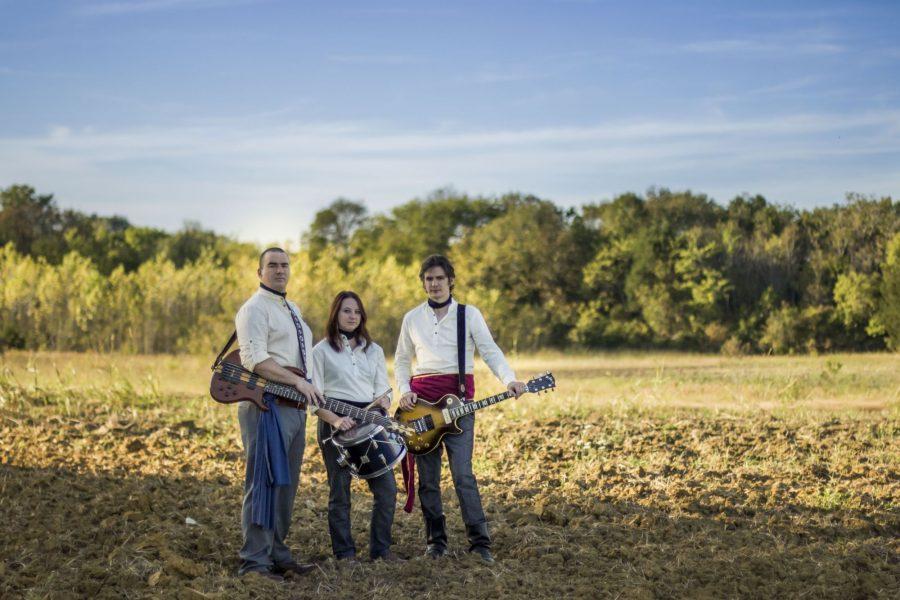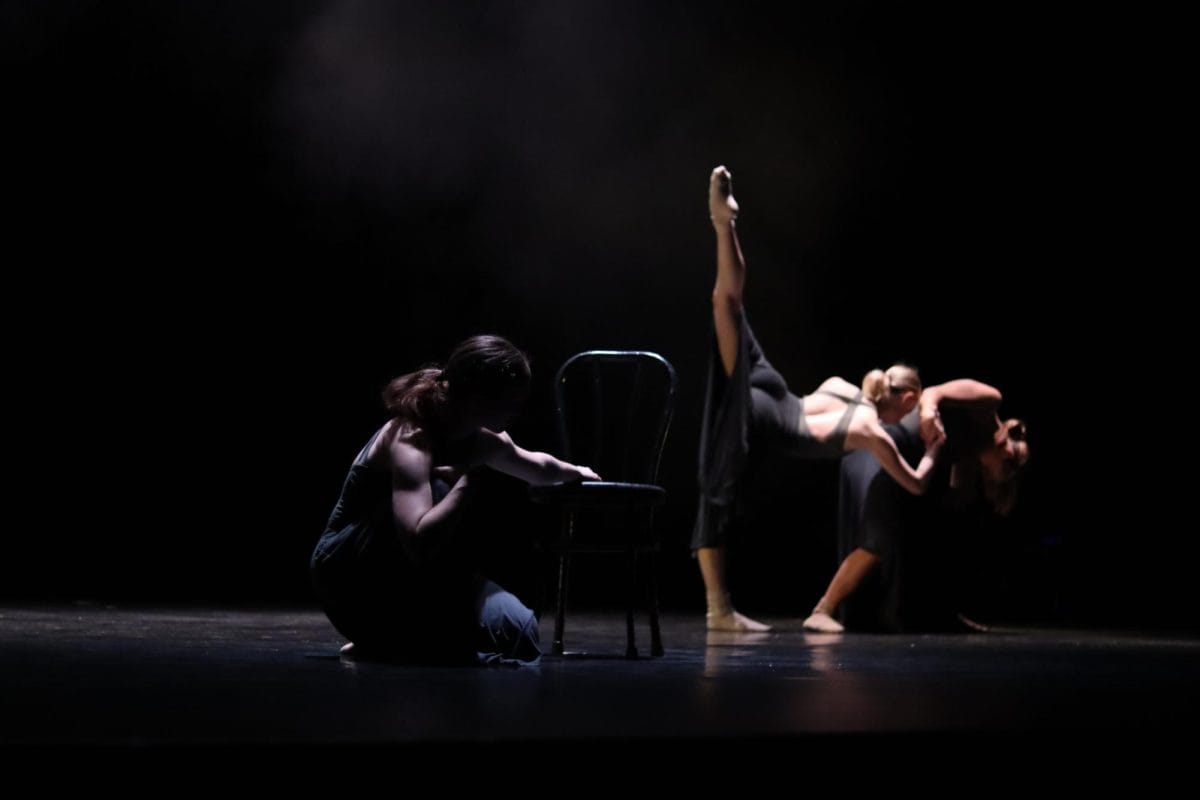“That’s a really fun trick to do because I think it surprises people,” said Major Jake Gordin, lead guitarist for the band. “Especially at the Alcove when there are two ranks of people watching us and I burst through the first row and everyone’s just like ‘Oh it’s the band right here in front of me.’ I like to mess with people.”
This is not an atypical scene for the Tuscaloosa rock band King’s German Legion. The band, consisting of Captain Brian Ritchie, Major Jake Gordin and Lieutenant Rebecca Doss, is very familiar with the Tuscaloosa music scene, as they have been involved in different musical projects since 2010.
Gordin and Ritchie played in an electric band for three years. After pursuing individual musical interests, Gordin reached out to Ritchie about his idea for King’s German Legion. His goal was to put together a rock and roll three-piece composed of musicians with the ability to sing.
“It was a constructed effort from the ground up,” Gordin said. “We had come from bigger rock and roll bands with more people and more moving parts. We wanted to do something that was a little more focused that had less extraneous weight. It turns out when you have three people that everyone has to cover a lot more ground. I think that one of the things that lends us a lot of strength is that we are all pretty versatile.”
The band’s name is a history lesson and influences the attire worn by the band. King’s German Legion is an early 19th century military unit that came into existence during the Napoleonic wars. Napoleon captured Hanover and the citizens moved to England to join the fight against the French and gain back their homeland. This group became the King’s German Legion.
The band’s specific rock and roll niche is influenced by southern aspects of rock, specifically delta blues. At their conception, they incorporated a variety of styles and sounds and have since created a unique direction for the band.
“I would certainly not call us a delta blues band, but those ideas and musical devices definitely come out through our version of rock and roll,” Gordin said. “We’re definitely a rock and roll three-piece, loud and nasty. But there’s a lot of that style and influence. That old 20s, 30s blues sound is in a lot of the construction of our songs.”
In February, King’s German Legion released its EP, “Marching Orders.” The EP clocks in at 25 minutes with five songs. The record is comprised of songs that were in their arsenal that created a form of cohesion, band members said.
“There is coherency on the record, but I think that’s more of a zeitgeist accident than it was an intentional construction,” Gordin said. “That’s just the kind of songs we were writing at the time. We weren’t writing for an underlying theme. It’s just what was in our heads.”
The band’s writing process is controlled members bringing musical snippets, ideas or sounds to the table and creating something from these fragments. These pieces will either lead to more ideas and eventually a track, but other times they are stored for later.
“I don’t believe in throwing out material,” Ritchie said. “I think anything we come up with has a place somewhere. Be it two years down the road or a couple days, so anything we can hold onto, we should. You never know what’s going to be applicable. We need to make an archive and just call it the junk drawer.”
They’ve procured the ideal rehearsal space for the band. They rent a small house to serve as their headquarters. The location offers the band the ability to play through all hours of the night at a varied volume.
Original material fills up much of the band’s live performances, but covers make their way onto the setlist too. King’s German Legion approaches covers with a specific goal – to play a song that makes the audience nostalgic, or a song that is rarely covered. They want the cover to excite the audience, rather than use redundant material.
Ritchie and Doss expressed their fondness of covering “The Price You Pay,” but the audience has another favorite.
“The crowd favorite that surprised me the most is “Godzilla” by Blue Oyster Cult,” Ritchie said. “People went nuts about it. We tried to take it out of rotation and people got mad, actually angry.”
As far as original music, Gordin’s favorite is “NE 319: Fundamentals of Applied Necromancy.” The eight and a half minute-long track is on the band’s new EP.
“It’s like a fake college course, obviously,” Gordin said. “It’s a really long song, clocks in at nine minutes when we play it right live. It’s a lot longer when we play it live than it is on the record. It’s got this really long, really spacey guitar solo. Things get really whacky and experimental. It’s the hardest part of the set for me. I look forward to it and dread it at the same time. It’s really rewarding for that reason too.”
The Tuscaloosa performances have largely benefited the band, as they’ve formed a small following that is in attendance at many shows. The band aims to please this fanbase, as well as continue to add more listeners. The dedicated audience has aided in increasing the band’s reach.
“That brings people in when you see people having a really good time at something,” said Ritchie. “I know that’s caught my eye at shows before. I’m maybe not into it, but all these guys are, you know. Maybe it’s the next song. I’ll get a beer and stick around and then you have a new favorite band.”
King’s German Legion will continue to tour throughout the summer and plans on recording more original music in the near future. They will perform at Oz Music at 1 p.m. on Saturday for Record Store Day.
“We have the term power trio, which has been around for as long as there’s been electric guitar,” Gordin said. “The power trio formula of guitar, bass and drums has influenced blues rock bands since the late 50s. It’s been a pretty powerful tool and I think we’re kind of in that tradition of big loud three-pieces.”







